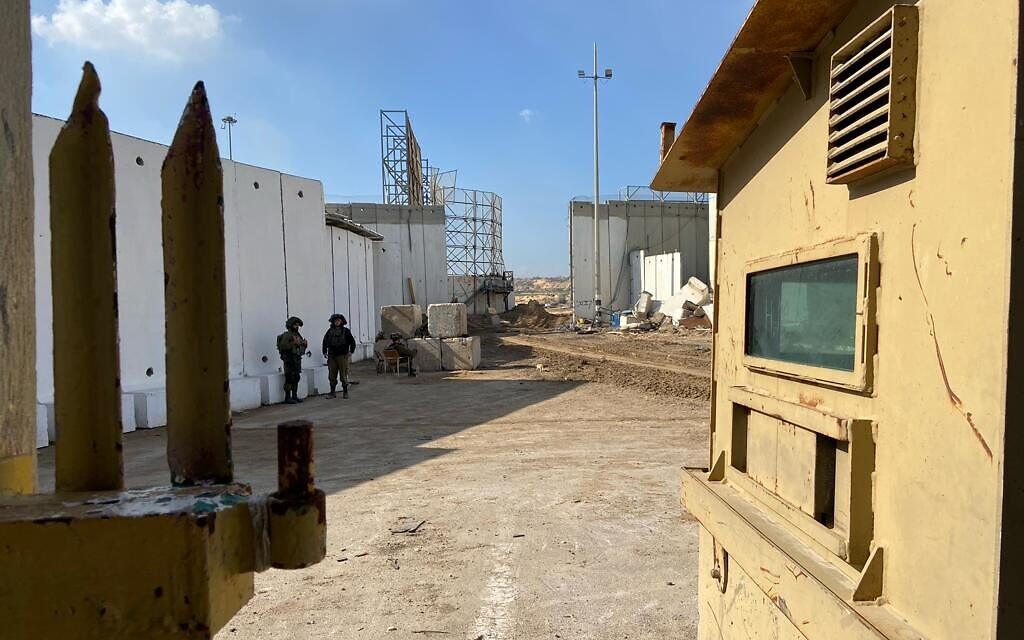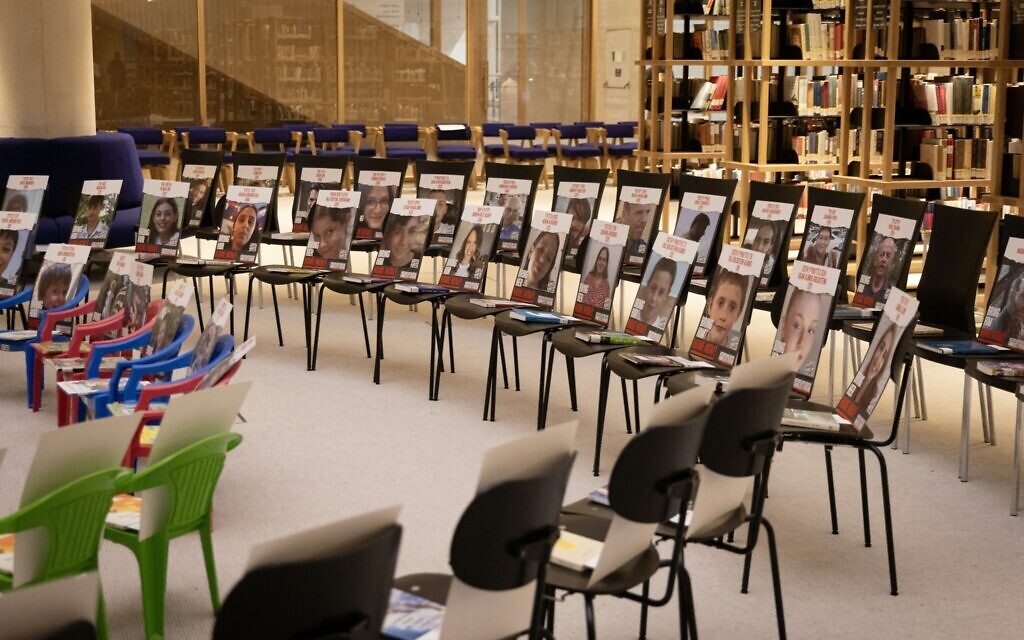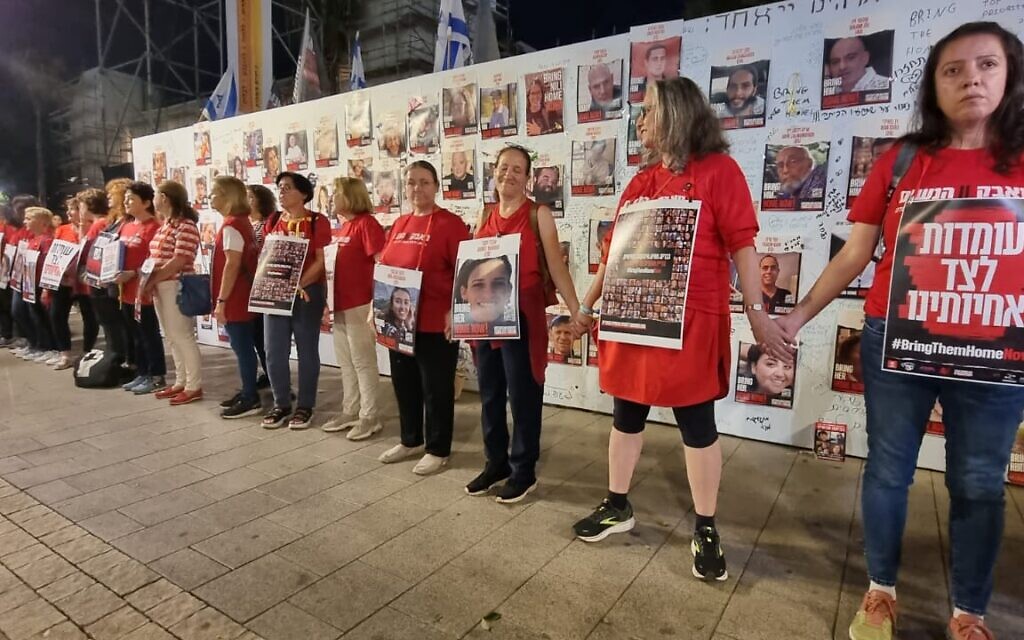Sixties Fan
Diamond Member
- Mar 6, 2017
- 58,285
- 11,051
- 2,140
- Thread starter
- #2,241
Follow along with the video below to see how to install our site as a web app on your home screen.
Note: This feature may not be available in some browsers.






Dear Human Rights Watch,
Because we live in dangerous times and this is a human rights organization dedicated to free speech, open dialogue, and rights for all, I’m sending a final email before leaving HRW. I’m hopeful, but wary, that an organization with a mission to “Expose. Investigate. Change” can do just that when it comes to its own practices regarding its Israel work, with authenticity and without retaliation.
When I joined Human Rights Watch over 13 years ago as senior editor, I did so with years of experience in journalism covering the Israeli-Palestinian conflict and time in academia.
Human Rights Watch seemed to be a good blend of both; a leading human rights organization dedicated to rigorous research, focused on international law and human suffering, with a mandate to bring about change. I believed in, and stayed for, the broader mission.
But as the organization grew and its composition shifted, so too did the focus, tone, and framing of its Israel-Palestine work. Following the Hamas massacres in Israel on October 7, years of institutional creep culminated in organizational responses that shattered professionalism, abandoned principles of accuracy and fairness, and surrendered its duty to stand for the human rights of all.
HRW’s initial reactions to the Hamas attacks failed to condemn outright the murder, torture, and kidnapping of Israeli men, women, and children. They included the “context” of “apartheid” and “occupation” before blood was even dry on bedroom walls. These responses were not, as some have since characterized it internally, a messaging misstep in the tumult after the Hamas assault. It was not the failure of a few to follow robust internal mechanisms of editing and quality control, as others have claimed.
It did not happen in a vacuum.
Rather, HRW’s initial response was the fruition of years of politicization of its Israel-Palestine work that has frequently violated basic editorial standards related to rigor, balance, and collegiality when it comes to Israel.
It was the expression of years of select historical and political framing that could always contextualize and “explain” why Jewish Israeli lives were lost in Palestinian violence.
And it was the domination of HRW’s Israel-Palestine work by some voices that drown out others to the point where those who feel uncomfortable with HRW’s approach and processes – and they do exist – feel silenced.
To be clear: focus on, and criticism of, Israeli policies and actions is valid for a human rights organization.
But what I know from over 13 years at HRW is:
* Israel has featured in the World Report annual global review of human rights I oversaw for more than a decade almost as extensively as world powers including China, Russia, and the United States, and that the Israel-Palestine chapter has always been longer than those of rights-abusing goliaths such as Iran and North Korea.
* The 2021 “Apartheid” report, hailed internally in its goal to affect “narrative change,” sealed the slide. HRW knew its careful, legal argument would rarely be read in full. And there is little doubt it has not been by those – including Hamas supporters – who now bandy about the term with appalling ease. It’s a one-word gift to those who want to characterize Israel in as few words as possible with as little nuance as possible, a go-to “context” for any fate that befalls Israel and Jewish Israelis; 120 HRW researchers recently signed a petition calling for its inclusion in a press release about Israeli hostages.
* Internal fora nominally dedicated to both Israel and Palestine were, in practice, mostly dedicated to expressions of outrage over Israeli abuses and their consequences, both real and speculated. The focus on Israel dominated those spaces both before and after October 7, including the links shared; the space given to colleagues to articulate their lived realities and trauma; and ultimately advocacy.
* Some types of Israeli-Palestine expertise were valued more than others. There was no value placed on having a Jewish Israeli staff member who spoke Hebrew, had covered the Israeli-Palestinian conflict for international media, a rich academic background, and 17 years’ immersion in the country. The profile of those entrusted with HRW’s-related work is different. The only contact I had with Israel-Palestine content over the years, despite working on virtually every other area of the world, was as World Report editor. I received thinly veiled insinuations and pushback when I highlighted factual inaccuracies in the Israel-Palestine chapter that were later corrected.
* HRW has so little credibility for most Israelis they do not even trust it with their corpses. Zaka, the emergency responder group that collected body parts after the Hamas massacres, said it did not want to talk to HRW because its members did not have faith the organization would not misuse and distort their eyewitness accounts of the carnage they had seen.
* When I named the constellation of my experiences over years to a senior manager as feeling a lot like antisemitism, he replied: “You are probably right.” He did not ask or do anything further.

Three weeks after the October 7 massacres, Human Rights Watch told staff it was “proud” of its response to the crisis.
The self-affirmation failed to address output that included, but is not limited to:
HRW’s first matter-of-fact announcement following the October 7 massacres that barely addressed what had happened, contrasting starkly with its thousands of statements over the years condemning a range of human rights abuses:
“Palestinian armed groups carried out a deadly assault on October 7, 2023, that killed several hundred Israeli civilians and led to Israeli counterstrikes that killed hundreds of Palestinians,” Human Rights Watch said in releasing a questions and answers document about the international humanitarian law standards governing the current hostilities.”
An early press release that could easily be construed as blaming the victim:
“The unlawful attacks and systematic repression that have mired the region for decades will continue, so long as human rights and accountability are disregarded.”
A piece on Israeli attacks on Gaza being devastating for Palestinians with disabilities that failed to mention the devastating impact of Hamas’ attacks on Israelis with disabilities. They included those murdered on October 7, among them a 17-year-old girl with muscular dystrophy and cerebral palsy killed at a music festival; those who are now disabled because of the attacks; and Israeli hostages with pre-existing health conditions ranging from heart problems to diabetes.
Lack of context when using controversial figures that came from a Hamas-run ministry:
“[Washington Post] Reporter Adam Taylor quoted Israel and Palestine director at Human Rights Watch Omar Shakir, who said, “Everyone uses the figures from the Gaza Health Ministry because those are generally proven to be reliable. In the times in which we have done our own verification of numbers for particular strikes, I’m not aware of any time which there’s been some major discrepancy.”
It is not logical, not possible, and not the case that everyone at HRW agrees with its pre- and post-October 7 Israel work or feels safe. Instead, it is a deeply worrying indication that staff are self-censoring because they fear isolation if they speak and that nothing will be done even if they do. It is a warning that they are cowed by the way in which critics of Human Rights Watch are talked about internally, and by the tone and content of banter before and during meetings, in listservs, and in message chats.
Maybe they’re also not reassured by responses like the one senior management sent me regarding a recent email I sent them, in which they said they “appreciate” my “feedback” and “learn” from it.
I hope so, but I doubt it.
The serious professional concerns I raised over the years with the Program Office, General Counsel, and MENA managers never went anywhere. They were always received – it appeared – through a filter of me being a Jew and/or Israeli, even though Muslim and Arab staff and those with overt political backgrounds are trusted as advocates and to oversee research.
Also, my comments are not “feedback.”
Rather, they amount to a charge and a challenge to Human Rights Watch: tackle the long-standing issues infecting your Israel work and the hostile internal climate that Hamas’ attacks brought into sharp relief but did not birth. Face down the conscious and unconscious biases that inform them. Address inaccuracies by omission.
Do so not because you are under pressure to be seen to be listening, but because you respect the professionalism and expertise of your many thoughtful, serious colleagues from diverse backgrounds who cannot do their work without fear of stigma and retaliation if they speak.
Do so because you care about the health of the organization, upholding your internal standards, and ensuring human rights advocacy is not a fig leaf for political beliefs, or worse.
Do so because you want not just to claim your mantle of moral authority, but to earn it.
Dani






Wow. I suspected it.Bombshell exclusive: The BBC doesn’t just push Hamas propaganda. The BBC even gets a Hamas terrorist supporter to help write the story for them!
To say the BBC has been in trouble over their reporting of the conflict would be a grievous understatement. The BBC has rushed to present Hamas propaganda as news. It has reliedon the words of terrorist supporters to create stories that demonise Israel. The immediate public outcry has been so bad that they had to publicly apologise twice when cornered. Since October 7 the BBC has sided with – and chosen to believe – a radical Islamic terror group over Israel – a democracy and staunch ally of the United Kingdom.
The BBC’s relentless obsession:
This article published yesterday is a perfect example of how the BBC goes out of its way to demonise Israel – and the means through which it does so. If ever BBC executives are forced to stand before a panel at an inquiry – this should be one of the articles they need to explain.
It seems so benign. A human interest story about Gazan footballers who have been trapped by the conflict and could not play in the Palestine v Australia World Cup qualifier that took place yesterday (Australia won 1-0):

The BBC is not a local town newspaper. When looking at an article such as this – we need to analyse the motivation behind it warranting exposure to the BBC’s massive audience. Did the BBC put a team on this because it was such an important story that it needed to be reported – or is another dynamic at work; are they scrambling around for stories that demonise Israel – and this article got the green light only because it could potentially tick so many anti-Israel boxes?
Time to have a closer look.
Test 1 – is the pillar of the story true
We have no way of fully verifying the story. And importantly – nor did the BBC. But we can look at the evidence available:
Three Gazan footballers were named.
The BBC tells us that these three footballers ‘should have been training for the World Cup Qualifiers’ and we are then told that Ibrahim is described by his trainers ‘as one of the star defenders of the Palestinian team’,
Well that is a fact we can check. This is the number of times those three players have played for the Palestine National Team:
None of them have ever played for the national team at senior level before. It is true they have performed at the U-23 level – and are part of the set-up for next year’s olympics – but that is not the same thing. There is no evidence AT ALL – these players were all going to be called up for the world cup qualifiers. In fact – evidence was found to suggest they would NOT BE as Abuimeir only recently turned professional and remains part of the 2024 Olympic u23 plans.
- Ibrahim Abuimeir = zero (u23 appearances)
- Ahmed Kullab = zero (u23 appearances)
- Khaled Al-Nabris = zero (u23 appearances)
There is more. The Palestinian team doesn’t play many youngsters. In the current squad only one player is under the age of 23 (naturally a forward). The squad has NO DEFENDERS under the age of 24 (also quite normal for anyone who understands football). Two of the trapped Gazan players are defenders. Abuimeir (just turned 21) and Kullab (Just turned 22).
The BBC argument is that these three extremely young players – all coincidentally trapped in Gaza – none of whom have ever played for the national team before – were due to be in the World Cup squad. This story is nonsense.
We can say certainly that the description of Abuimeir in the headline as one of Palestine’s star defenders is blatantly untrue.
One other point of note. The BBC also relies on the words of Ehab Abu Jazar – a coach of the Palestinian team. This is what Abu Jazar posted on the morning of the 7th October. In this post he suggests that if someone does not see the events of Oct 7 as a great thing- then they are not really Palestinian. Perhaps FIFA need to look closely at him:
(full article online)

Verifying BBC (Hamas) propaganda - presenting exhibit A
Shocking exclusive: The BBC doesn't just push Hamas propaganda. The BBC even gets a terrorist supporter to help write the story for them.david-collier.com